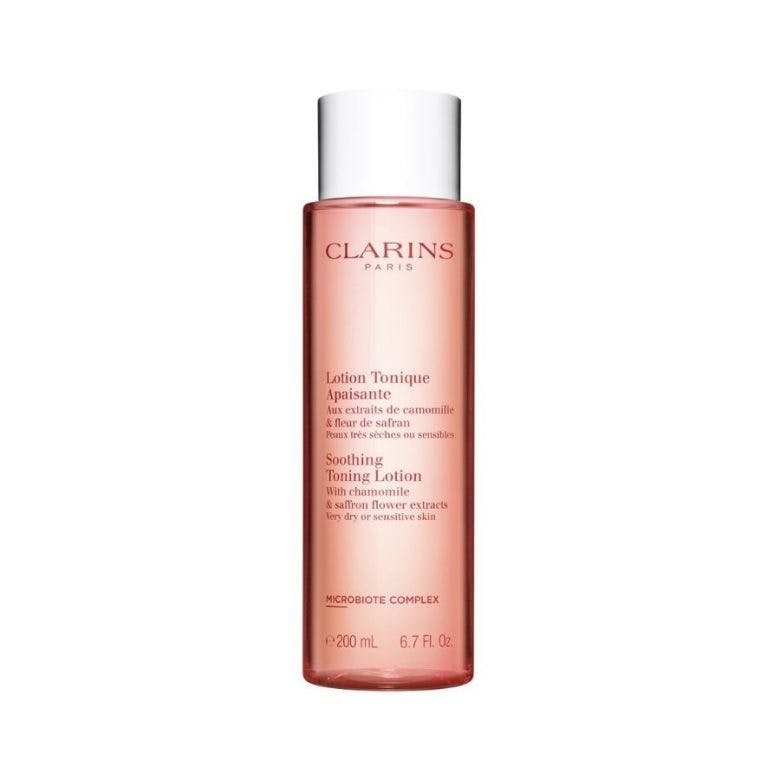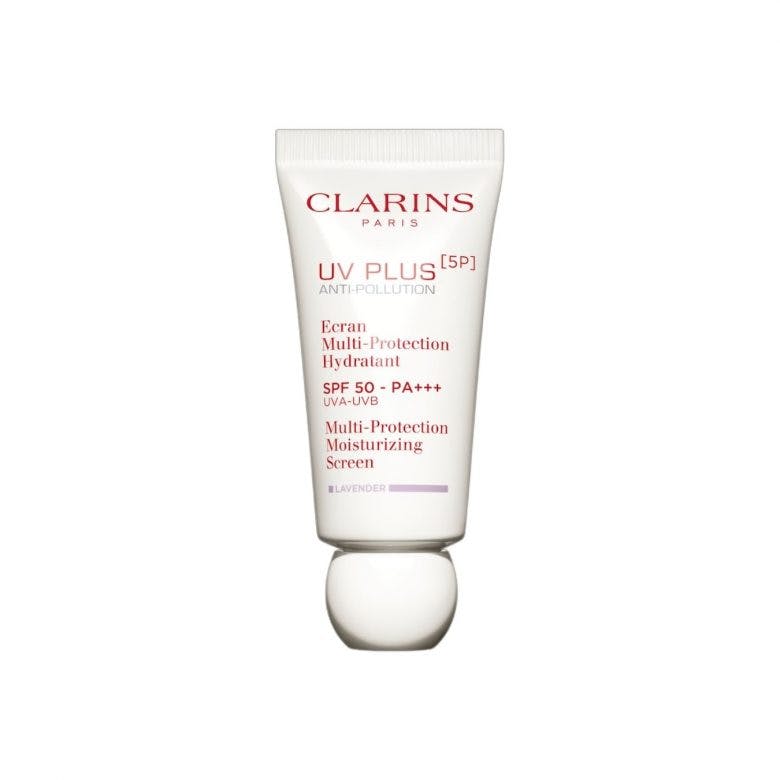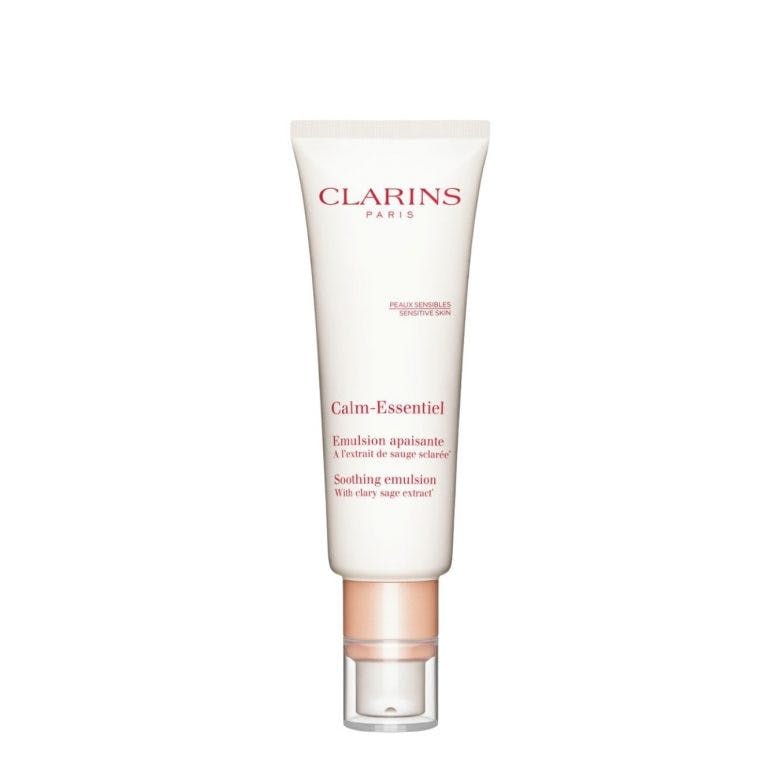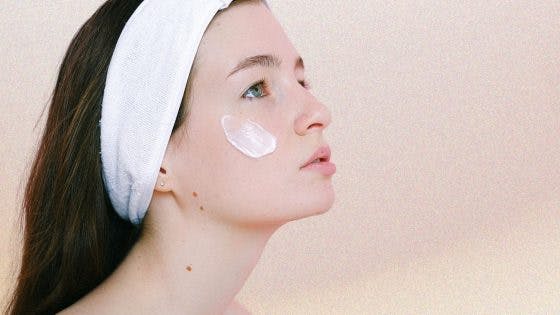The 20 Golden Rules of Skincare
12 minutes read
We are setting the record straight on the golden rules of skincare so you can put your best face forward and determine the best products and regimens right for your skin. So from building your skincare routine successfully or aiming for specific skin goals, we have you covered.
Some of the most Google’d questions are the fundamentals: What are the basics of skincare for me? How do I choose a skincare routine? At what age should I start a skin routine? So, if you are reading this, perhaps the best time is now.
However, that doesn’t mean that you need a crazy number of expensive products or time-consuming steps. First, make friends with your skin and get to know it better, find what your skin needs, and help it blossom.
The main goals of caring for your skin

Talking about the skin condition goals, let’s not be perfectionists. The new trend on natural make-up sometimes makes us expect the skin to look like porcelain or glass. Do not deceive yourself with the retouched photos, filters or videos with professionally placed light.
Natural skin can have texture, pores, wrinkles, blemishes or pigmentation, and still be beautiful. Though, of course, the proper skincare does have the power to enhance.
We highlighted the four most significant groups of skincare goals that you may want to achieve, so that it might be easier for you to define yours.
Oily or problematic skincare goals:
Oily or combination skin with an oily T-zone, and acne, skin inflammations, blackheads is an any-age skin goal. If you are concerned about these you probably want to minimise large, open pores and sebum secretion. So look for skin-clearing but natural ingredients so they don’t strip the epidermis. But also, you must not forget about skin moisturising and protection.
Dry or ageing skincare goals:
You can have dry skin at any age. So, if it’s showing up as noticeable dehydration, irritation and wrinkles, it’s not being moisturised and nourished well. As time passes, skin gets drier, so ageing skin goals are very similar to dry skin type — good hydration, gentle treatments, and protection.
Sensitive, uneven complexion, dark circles, rosacea skincare goals:
These skin conditions mean you own thin or sensitive skin, prone to allergies. Your capillaries might be located very close to the skin, so the complexion often looks uneven.
Chemical damage, sun damage, post-acne skincare goals:
Damaged skin needs to be treated carefully and sometimes demands professional care. The best plan will be to consult with a dermatologist to choose a special routine for your skin conditions. Products with acids usually help to return smooth skin texture and complexion.
What exactly does skincare involve?
When it comes to caring for the skin, this is an overview of what a decent regimen involves. So, what are the basic four steps of skincare?
Cleansing
If you use make up, then first apply a remover, then wash your face with a foam or gel.
Toning
Toner or lotion helps to balance pH after cleansing. Also, it helps to remove any make-up remains.
Moisturising and nourishing
This step can include a serum and your daily moisturising and nourishing cream.
Suncare and protection
Always use an SPF during daylight hours. If there is one in your moisturiser, great, but Beauty Daily recommends investing in a specific SPF cream and layer a dessert spoon all over the face (including eyelids and lips), neck, chest, ears and back of hands. As a general rule, aim for at least SPF30 for winter and in summer a SPF50.
Getting to know your skin
How to know you skin type? Beauty Daily recommends to test your skin and find out. These links will help you to learn more about your skin type and find a better definition:
What is sensitive skin and how you should treat it
How to define, is your skin really dry or just dehydrated
What is combination skin and how to balance it
What you can do with skin ageing
If you got clear and healthy skin, what should be your routine
Understanding Skincare Products
If you buy all the skincare products declared as “must-haves” by influencers, that can probably turn your beauty routine into an expensive obsession. Instead, a wiser approach is to set up your own skincare goals.
- Face cleansers can be used just to wash away pollution or remove make-up. For make-up removal you will need oil or micellar cleansers, for regular washing you can take a foam or gel.
- Eye care is a set of products for cleansing, moisturising, and lifting eye contour. If you have sensitive and delicate skin around your eyes, pay attention to this zone and don’t apply too much pressure.
- Toners help normal pH balance, get a smooth complexion, and tighten pores.
- Serums are the most highly-concentrated products that can give your skin a boost of energy, provide radiance, lift and tighten. Think of them as your ‘doing step’.
- Moisturising is essential in skincare; even oily skin will benefit.
- You can’t underestimate lip and neck care, as these are specific zones that need to be well moisturised and protected.
- Masks and exfoliators are not something you must use every day. But regular additional care will help you to achieve skincare goals very fast.
- UV protectors are must-have products to keep your skin healthy and youthful-looking over the years.
Building a routine
When building a routine, you should base it on your current skin type and conditions.
If you want to start with something, Beautydaily recommends a simple four-step base skincare routine.
1. Cleanse your face with SLS-free Hydrating Gentle Foaming Cleanser with Alpine herbs. Its creamy texture helps your skin to stay moisturised after washing.
If you need to remove make-up, apply Total Cleansing Oil before, and it will dissolve even waterproof heavy make-up.
2. Apply an alcohol-free Soothing Toning Lotion with camomile extract to naturally rebalance the skin flora.

3. Moisturise your skin with Super Restorative Rose Radiance Cream for all skin types. Its radiance-boosting formula provides a luminous complexion and a smooth skin texture.
4. In the morning, apply a UV PLUS [5P] Anti-Pollution Rose multi-protection fluid with SPF 50. It gives additional moisturise and protection to your skin.

Professional Skincare Options
Professional skincare is an option you can use for problematic or ageing skin. Otherwise, these are not necessary treatments, and they can’t replace your home everyday skincare. But it’s an excellent opportunity to take a professional advice and discover new effective methods.
Deep cleansing doesn’t need to be done regularly, unless you have an oily problematic skin. If your sebum secretion is very strong, a professional manual or ultrasonic cleansing can help to purify pores and control acne.
20 Skincare Golden Rules
What are the basics of skincare? These 20 simple rules you can use as a check-up which can help you to achieve glowing from inside and youthful looking skin.
1. Always remove make-up
This is the first golden rule of skincare. Do not sleep with make-up products remaining on your face, and your skin will say, “Thank you!”
2. Cleanse skin at least once a day
Sometimes dermatologists recommend skipping cleansing your face in the morning if you have sensitive skin. Instead, a simple swipe of a gentle toner might suffice. But at least once a day, even if you don’t use make-up — to take away the pollution, sebum, and dead skin particles.
For deep cleansing at home, you can use electronic brushes that gently purify and exfoliate skin.
3. Don’t use too hot or too cold water
Too hot water can destroy a skin barrier and provide dehydration. So, do not apply hot water every day, even on oily skin. Washing your face with cold water can be an option, but not for sensitive, thin or rosacea skin.
4. Take care of skin pH
You must pay attention to the pH balance, especially if you feel itching or irritation. Then try to use a gentle cleanser. Sometimes it just depends on water quality, then a toner or a lotion will help normalise the skin condition after washing.
5. Exfoliate
Exfoliation is not something you should do every day. But good exfoliation is an advantage for any skin type and makes your following products work harder. For young, oily types and thicker skin you can use granular scrubs; for ageing skin better to choose acid peels. Even on dry and sensitive skin you can use products with fruit, lactic or almond acids.
6. Moisturise and nourish
There is no full skincare routine without moisturising. Do not miss this step, even on oily skin. If it stays dehydrated, it can cause even more sebum secretion.
Sometimes you cannot easily define if a product is moisturising or nourishing. Modern formulas usually have both. But if you need a boost, use facemasks, serums and patches in addition to your daily routine.
7. Be gentle with your skin
Your skin is something you get for the rest of your life, so treat it carefully. Please do not rub it or stretch it while washing, applying cream or make-up. This will help to prevent any irritation or lines from forming.
8. Use a lip balm
Lip skin needs specific and tender care. Use a lip balm every day and three steps for more intensive care — lip scrub, moisturising cream and protective balm.
If you have fine lines along the lip contour, there are ways to treat them. Read: How to Treat Wrinkles Above the Lip
9. Take special care of the skin around the eyes
The skin is different near the eyes — it is delicate, prone to allergies and irritation, puffiness, wrinkles and dark circles. That’s why you need a special eye cream — less irritating, which contains no fragrance, more hydrating and gentler than a regular face cream.
10. Layer products in the right order
The rule of thumb is: cleansing > exfoliating > toner or lotion > serum > masks or patches > moisturising cream > oil > SPF. Overall, it’s better to apply liquid and light formulas before thick, rich and oily products.
11. Choose products related to your skin type
Take personal skincare advice. There are platforms like GetHarley, Renude or head to a trusted department store counter like Clarins for bespoke regimen advice.
12. Listen to your skin carefully…
… and soon you’ll find out which products and ingredients work on your skin best. If your skin is sensitive and prone to allergies, try a new product on a small area and wait for a few hours to see how your skin reacts.
13. Take advantage of your make-up products
Make-up is not the enemy; the latest formulations, especially offered from skincare brands are more caring and can help you reach your skin goals. Also, make-up can build a physical barrier between your skin and outdoor pollution or bad weather conditions.
14. Keep it clean
Ensure all your skincare and make up tools are clean. Just wipe off the dust on your bathroom shelves, throw away all make-up after expiration date, change towels and a pillowcase regularly. Invest in the StylPro Brush cleaning system — it cleans, anti-bacs and dries brushes in minutes.
15. Get some rest and avoid stress (as much as possible)
Rest and stressless life are the best friends of your skin, so keep calm and take a beauty nap when you can.
16. Learn a face massage
Why not learn a few simple technics of face massage or take a professional course? This will help to tighten your skin and provide a fresh skin tone. At home you can use a serum or face oil and stone skin rollers. Just not rub or stretch your skin too much and follow the ascending lines.
Check out this double cleanse and massage tutorial:
17. Take care of your skin regularly
No matter how good and expensive your skincare is, it won’t work fully if you use it only from time to time. And conversely, a small routine that you stick to every day will make sense.
18. Eat well
Be sure you eat enough vegetables and proteins, vitamins and minerals so your skin will produce enough collagen.
19. Drink enough water
We know it’s standard advice for every situation, but this is real. Your skin will look better when hydrated from the inside. Aim for 2 litres per day, including still water, herbal teas and vegetable juices.
20. Use SPF daily
Sun protection is one of the significant pro-agers. Always use it even on dull days to have protection from both UVA and UVB lights.
When should you start a skincare routine?
When should you start a skincare routine? We must say, it’s never too early or too late. For young skin, of course, you don’t need heavy treatments. But good cleansing, moisturising and SPF protection will work to keep your skin clean, and prevent fast ageing in future.
If you start thinking of your skin routine in your 30’s, 40’s or 50’s, that’s ok, too. Never too late to build an appropriate skincare ritual, try new ingredients, products, or explore the world of professional cosmetology.
Skincare fasting
This is an opportunity to detox and take a break for skin, especially if you’re seeing aggravated and reactive after-effects of using inappropriate products. This method helps restore natural barrier.
The method is based on less is more. Or if you’ve overdone it — then invest in some basics and a calming product to use for 2-4 weeks to get skin back into balance. For example, try a Calm-Essentiel Soothing Emulsion with natural ingredients to moisturise and protect your skin, avoid discomfort and intensely hydrate.

Choose a Calm-Essentiel Restoring Treatment Oil for weakened and sensitive skin. It helps with soothing, nourishing and protecting your skin.
Active Ingredients that some should avoid
According to your skin condition, there is some standard advice about ingredients you should avoid. But, of course, for a better approach, you should consult with a professional dermatologist.
- Sulfates must be chosen carefully if you have sensitive or dry skin. SLS, SLES and SMS are the “hardest”, Coco-Betaine, Cocamidopropyl Betaine, Coco-Glucoside, Caprylyl, Sodium Cocoate, Sodium Cocoamphoacetate and Lauryl glucoside are gentler.
- Salicylic acid can irritate dry skin, so in this case, is better to use AHA and PHA acids.
- Retinol or vitamin A and Vitamin C are not recommended for sensitive, prone to redness.
- Homemade masks and DIY recipes are red flags for prone to allergies skin. Before apply, better to try it on a small skin zone and wait for a few hours.
There you have it — the golden rules of a bespoke skincare regime. Do let us know how you get on.
Sign up for our newsletter
We will keep you in the loop for special offers, exclusive gifts and product news.

